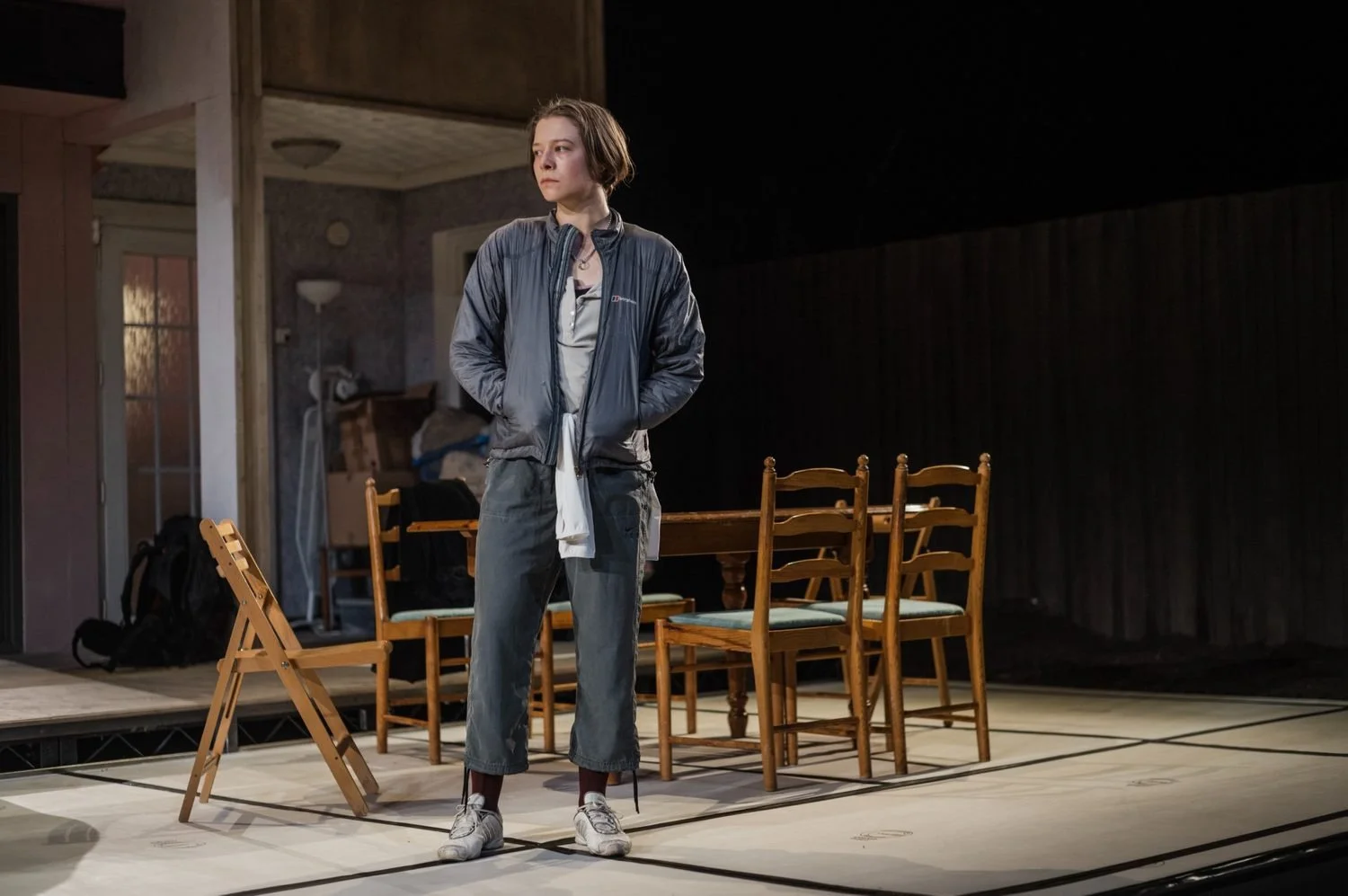“The Other Place” at National Theatre
My Theatre Confidences 🤫
The Other Place
National Theatre until 9 November
at a glance…
This modern Antigone pulled me into the raw heart of grief, mirroring my own experience of loss with unsettling precision. Annie’s clash with her uncle over her father’s ashes echoes the fractured ways we hold onto or let go of those we’ve lost. The silences and fragmented dialogue felt hauntingly true, reflecting how sorrow breaks through the everyday. Watching The Other Place felt like confronting the madness of grief head-on, an invitation to sit with pain rather than turn away.
This play took me right into the heart of grief. I wasn’t entirely sure what to expect from this modern twist on Antigone, a reimagining that seemed miles away from ancient Greek tragedy. Yet, within moments, I was drawn into a charged atmosphere of grief, family tension, and haunting, unresolved mourning that felt almost too close for comfort. This is a play that doesn’t shy away from the messy, volatile nature of loss; instead, it peels back each character’s pain with unsettling precision.
The story centers on Annie, portrayed by Emma D’Arcy with incredible intensity, who returns home years after her father’s death only to find that her uncle, Chris (Tobias Menzies), has started renovating the family home. Chris’s goal is to scatter her father’s ashes and move forward, while Annie clings fiercely to the past, determined to keep her father’s ashes at home. This clash over something as simple as a collection of ashes becomes a deeply symbolic struggle, reflecting how differently people experience grief. Where Chris craves release, Annie’s grief manifests as a protective, almost defiant attachment, as if preserving these ashes could somehow restore her fractured world.
What struck me most is how raw and multifaceted grief feels in The Other Place. There’s a common thread of grief as madness—a concept often associated with Antigone—but here, Zeldin dives into the psychological terrain of loss as both deeply isolating and communal. This grief becomes a living, disruptive force. Dialogues between characters are often broken, as if grief itself interrupts them. These interruptions felt so true to life, like how sorrow can catch us off guard mid-conversation, making even the simplest moments feel impossibly heavy.
The writing touched the most fragile parts of me, especially through Zeldin’s use of silence to fill the gaps. Those long, deliberate pauses are beautifully crafted—not empty, but full of all the unspoken words and shared pain.
These moments forced me to confront my own relationship with grief, particularly my aunt’s passing two years ago. She was like a mother to my brothers and me, and her loss has left an absence that still feels too vast to comprehend. There are times when I sit in silence with my brothers, not for lack of words but as a mutual acknowledgment of pain. In those silences, we connect through our grief, trying, and often failing, to move forward. Watching The Other Place reminded me of those moments. The silence demanded that I confront the madness of sorrow and grief, to let it wash over me without looking away.
The set mirrors this brokenness beautifully. Rosanna Vize’s design of the half-renovated house is eerily perfect—a home mid-transformation, trapped between what it was and what it’s becoming, much like Annie herself. The sliding glass doors are more than just modern architecture; they’re like a window into this fractured family, almost mocking, highlighting what’s hidden and painfully exposed.
And where the writing almost displaced me, confronting some dark grieving parts of myself, the extraordinary cast anchored me in those difficult moments. D’Arcy and Menzies bring such depth that I felt held by their performances, as if they were inviting me to keep sitting with my own grief, to give it space and, ultimately, maybe a chance for healing.
The play doesn’t provide easy answers or tidy resolutions. Instead, it invites us to witness the complexity of grief—to sit in its silence and brokenness. It showed me how theatre, at its best, doesn’t try to tidy up our feelings but lets us sit with them, confronting the madness of sorrow.
My Way of Looking at Theatre
You know, the more I think about it, the clearer it becomes that traditional theatre criticism has often been a tool for maintaining existing power structures.
It’s time to drop the privileged fancy talk around theatre and break free from star ratings.


